Battle during the eclipse - truth or historical fairy tale? (8 photos)
Imagine the following situation: two furious kings have been fighting for five years. Their men were dying, but there was no end in sight. Suddenly, the sky, which had been shaking from the clanking of armor, darkens before our eyes: a solar eclipse is coming. 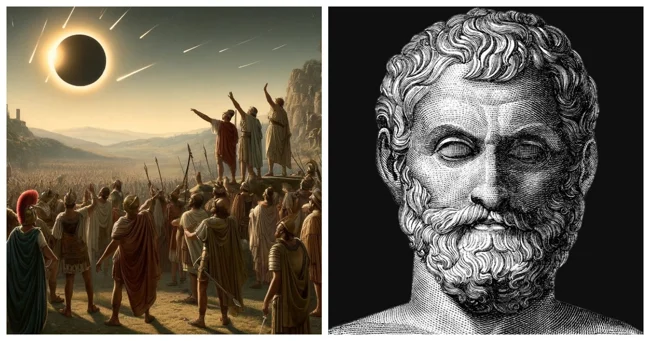
When day turns to night in a matter of minutes, warriors on both sides lower their axes and spears, stunned by how the play of nature eclipses human anger. Both rulers decide to declare a truce. 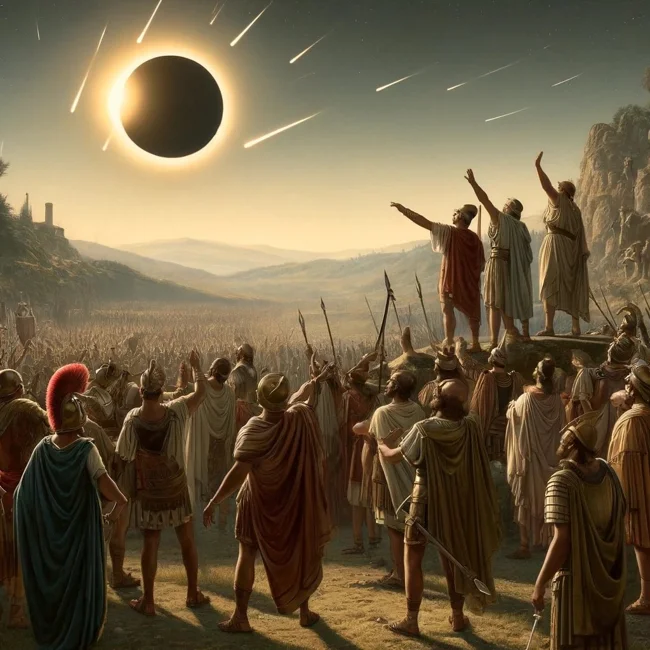
Historical tales are as good as ordinary tales, and this one in particular has been captivating astronomers and historians for centuries. According to the Greek historian Herodotus, the battle took place in Asia Minor. Alyattes, king of Lydia, fought Cyaxares, king of the Medes, or present-day Iranians, somewhere on the Halys River, in what we now call Turkey.
But the war was suddenly stopped by a near-total solar eclipse, the first in history that had been predicted in advance. It went down in history as the Battle of the Eclipse. 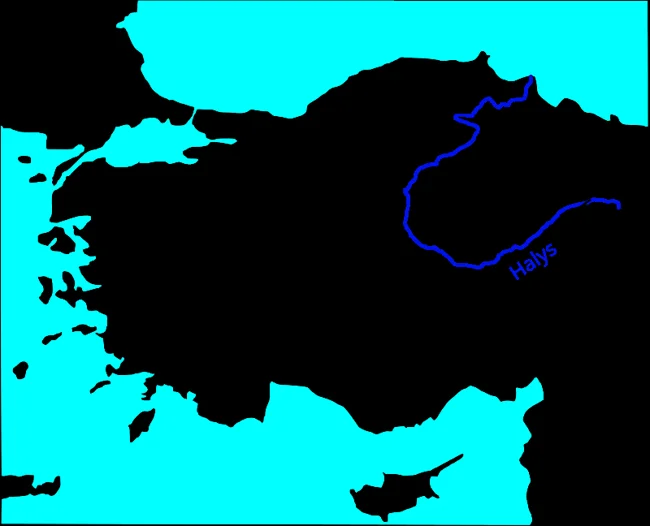
The eclipse occurred on May 28, 585 BC. Herodotus suggests that the Greek astronomer and mathematician Thales of Miletus predicted it long before it happened. That is why many began to call the eclipse "Thales' Eclipse." His city of Miletus was on the edge of the eclipse's path and, although not directly shadowed, observed the event from close up. The strange thing is that he was able to pinpoint the year of the event, but not the date or time.
Predicting a solar eclipse is not easy. However, any calculation that allows one to determine the onset can predict it down to the exact time. Over the centuries, scholars have been doing the reverse calculations to determine the exact date that exactly matches Herodotus' description. And this date matched most closely. 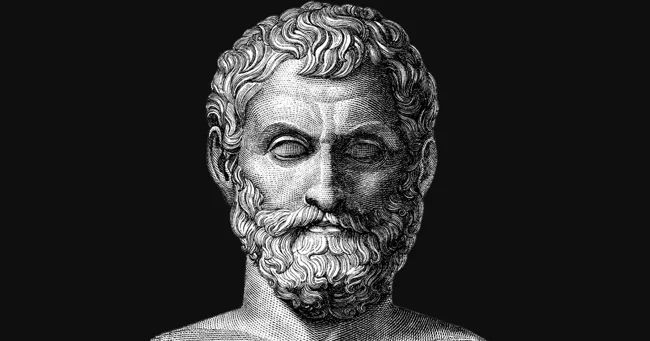
Thales of Miletus
However, there were many who refuted the historian's account of the event. In The Eclipse of Thales, Alden A. Mosshammer examines the various arguments and hypotheses put forward by analysts of the event. For example, Otto Neugebaue suggests in his works that neither Thales nor his Babylonian contemporaries had the means or the environment to predict such an event.
The theory goes that even if his claims are to be believed, and Thales did have access to previous Miletus astronomical data to refer to, his predictions would have led him to May 18, 584 BC. A solar eclipse did indeed occur on that date, but it was too insignificant. What was significant was the near-total eclipse that Thales had observed the year before, when the battle took place. 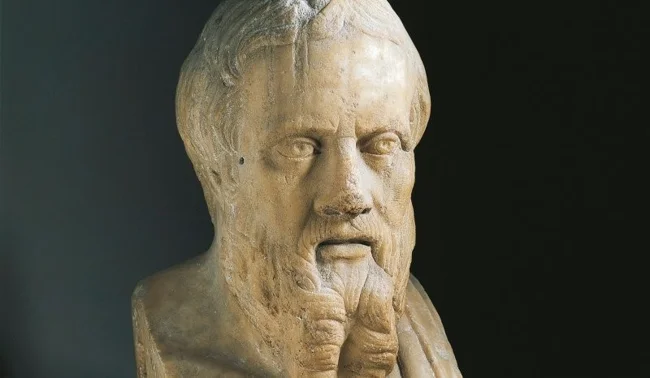
Herodotus
Another point of contention is the accuracy of Herodotus's account compared to the data from previous cycles. Many argue that the Babylonians kept extensive records. However, the lack of empirical evidence suggests that such records were not available at such an early date, meaning that the story of Thales's prediction is likely a rumor passed down by word of mouth.
Thales was a man of great repute, having developed Egyptian geometric theorems for calculating the distance between ships and measuring the height of the pyramids before Euclid systematized them. It is likely that his achievements were exaggerated over time by his ardent followers. 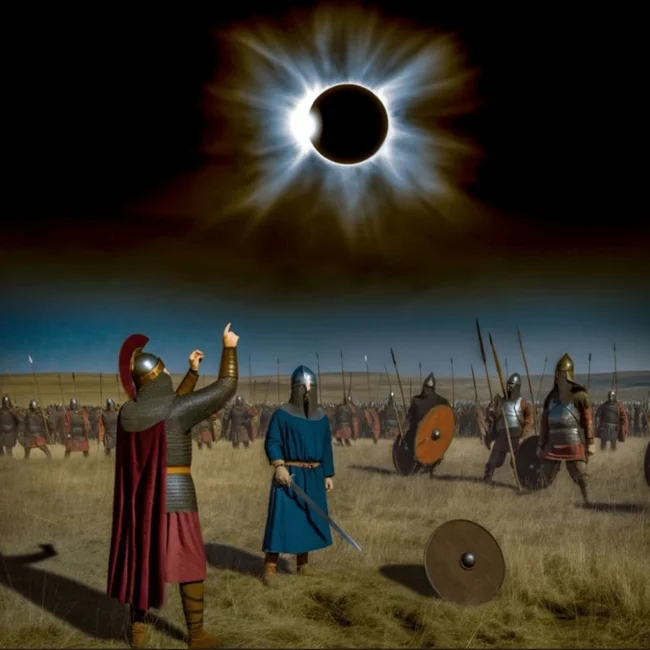
Herodotus's chronology is also questionable. Many claim that Astyages was king during the battle, not Cyaxares. Pliny, the first person to tell of the battle, named only the Lydian king Alyattes in his work, and the name of the Median king has remained in question ever since. 
Despite the fact that the stories again and again link Thales' name to the great battle, there is one tiny detail that many overlook. Herodotus, describing the onset of the eclipse, says that "the day suddenly became night."
But the eclipse followed a specific path and passed the battle site just before sunset. The eclipse began at the Halys River at 5:30 p.m. and peaked around 6:25 p.m. At a time when the darkness of the night was already expected, could the shadow of the eclipse have captivated the soldiers enough to inspire them to lay down their arms? 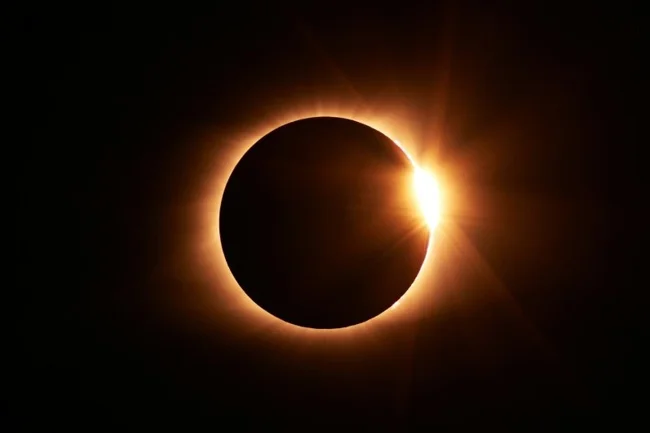
Despite the questions, doubts and disputes, the truth of the historical event remains unshakable. It was at the Battle of the Eclipse that the Medes and Lydians finally reconciled. A treaty was signed, and the river Halys became the border between the lands of the two warring parties. Whether it was the eclipse of Thales or the nameless force of mercy between the warring parties, no one will ever know.






























